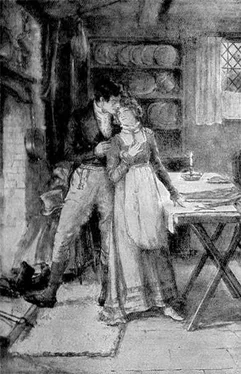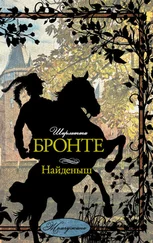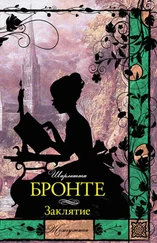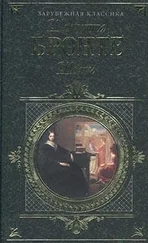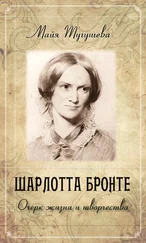Шарлотта Бронте - Shirley
Здесь есть возможность читать онлайн «Шарлотта Бронте - Shirley» весь текст электронной книги совершенно бесплатно (целиком полную версию без сокращений). В некоторых случаях можно слушать аудио, скачать через торрент в формате fb2 и присутствует краткое содержание. Год выпуска: 2014, Издательство: epubBooks Classics, Жанр: Классическая проза, на английском языке. Описание произведения, (предисловие) а так же отзывы посетителей доступны на портале библиотеки ЛибКат.
- Название:Shirley
- Автор:
- Издательство:epubBooks Classics
- Жанр:
- Год:2014
- ISBN:нет данных
- Рейтинг книги:3 / 5. Голосов: 1
-
Избранное:Добавить в избранное
- Отзывы:
-
Ваша оценка:
- 60
- 1
- 2
- 3
- 4
- 5
Shirley: краткое содержание, описание и аннотация
Предлагаем к чтению аннотацию, описание, краткое содержание или предисловие (зависит от того, что написал сам автор книги «Shirley»). Если вы не нашли необходимую информацию о книге — напишите в комментариях, мы постараемся отыскать её.
Shirley — читать онлайн бесплатно полную книгу (весь текст) целиком
Ниже представлен текст книги, разбитый по страницам. Система сохранения места последней прочитанной страницы, позволяет с удобством читать онлайн бесплатно книгу «Shirley», без необходимости каждый раз заново искать на чём Вы остановились. Поставьте закладку, и сможете в любой момент перейти на страницу, на которой закончили чтение.
Интервал:
Закладка:
"I hope I was answered, Yorke?
"'I seem to be a blind, besotted sort of person,' was my remark.
"' Loved you!' she cried. 'Why, I have been as frank with you as a sister—never shunned you, never feared you. You cannot,' she affirmed triumphantly—'you cannot make me tremble with your coming, nor accelerate my pulse by your influence.'
"I alleged that often, when she spoke to me, she blushed, and that the sound of my name moved her.
"'Not for your sake!' she declared briefly. I urged explanation, but could get none.
"'When I sat beside you at the school feast, did you think I loved you then? When I stopped you in Maythorn Lane, did you think I loved you then? When I called on you in the counting–house, when I walked with you on the pavement, did you think I loved you then?'
"So she questioned me; and I said I did.
"By the Lord! Yorke, she rose, she grew tall, she expanded and refined almost to flame. There was a trembling all through her, as in live coal when its vivid vermilion is hottest.
"'That is to say that you have the worst opinion of me; that you deny me the possession of all I value most. That is to say that I am a traitor to all my sisters; that I have acted as no woman can act without degrading herself and her sex; that I have sought where the incorrupt of my kind naturally scorn and abhor to seek.' She and I were silent for many a minute. 'Lucifer, Star of the Morning,' she went on, 'thou art fallen! You, once high in my esteem, are hurled down; you, once intimate in my friendship, are cast out. Go!'
"I went not. I had heard her voice tremble, seen her lip quiver. I knew another storm of tears would fall, and then I believed some calm and some sunshine must come, and I would wait for it.
"As fast, but more quietly than before, the warm rain streamed down. There was another sound in her weeping—a softer, more regretful sound. While I watched, her eyes lifted to me a gaze more reproachful than haughty, more mournful than incensed.
"'O Moore!' said she. It was worse than 'Et tu, Brute!'
"I relieved myself by what should have been a sigh, but it became a groan. A sense of Cain–like desolation made my breast ache.
"'There has been error in what I have done,' I said, 'and it has won me bitter wages, which I will go and spend far from her who gave them.'
"I took my hat. All the time I could not have borne to depart so, and I believed she would not let me. Nor would she but for the mortal pang I had given her pride, that cowed her compassion and kept her silent.
"I was obliged to turn back of my own accord when I reached the door, to approach her, and to say, 'Forgive me.'
"'I could, if there was not myself to forgive too,' was her reply; 'but to mislead a sagacious man so far I must have done wrong.'
"I broke out suddenly with some declamation I do not remember. I know that it was sincere, and that my wish and aim were to absolve her to herself. In fact, in her case self–accusation was a chimera.
"At last she extended her hand. For the first time I wished to take her in my arms and kiss her. I did kiss her hand many times.
"'Some day we shall be friends again,' she said, 'when you have had time to read my actions and motives in a true light, and not so horribly to misinterpret them. Time may give you the right key to all. Then, perhaps, you will comprehend me, and then we shall be reconciled.'
"Farewell drops rolled slow down her cheeks. She wiped them away.
"'I am sorry for what has happened—deeply sorry,' she sobbed. So was I, God knows! Thus were we severed."
"A queer tale!" commented Mr. Yorke.
"I'll do it no more," vowed his companion; "never more will I mention marriage to a woman unless I feel love. Henceforth credit and commerce may take care of themselves. Bankruptcy may come when it lists. I have done with slavish fear of disaster. I mean to work diligently, wait patiently, bear steadily. Let the worst come, I will take my axe and an emigrant's berth, and go out with Louis to the West; he and I have settled it. No woman shall ever again look at me as Miss Keeldar looked, ever again feel towards me as Miss Keeldar felt. In no woman's presence will I ever again stand at once such a fool and such a knave, such a brute and such a puppy."
"Tut!" said the imperturbable Yorke, "you make too much of it; but still, I say, I am capped. Firstly, that she did not love you; and secondly, that you did not love her. You are both young; you are both handsome; you are both well enough for wit and even for temper—take you on the right side. What ailed you that you could not agree?"
"We never have been, never could be at home with each other, Yorke. Admire each other as we might at a distance, still we jarred when we came very near. I have sat at one side of a room and observed her at the other, perhaps in an excited, genial moment, when she had some of her favourites round her—her old beaux, for instance, yourself and Helstone, with whom she is so playful, pleasant, and eloquent. I have watched her when she was most natural, most lively, and most lovely; my judgment has pronounced her beautiful. Beautiful she is at times, when her mood and her array partake of the splendid. I have drawn a little nearer, feeling that our terms of acquaintance gave me the right of approach. I have joined the circle round her seat, caught her eye, and mastered her attention; then we have conversed; and others, thinking me, perhaps, peculiarly privileged, have withdrawn by degrees, and left us alone. Were we happy thus left? For myself, I must say No. Always a feeling of constraint came over me; always I was disposed to be stern and strange. We talked politics and business. No soft sense of domestic intimacy ever opened our hearts, or thawed our language and made it flow easy and limpid. If we had confidences, they were confidences of the counting–house, not of the heart. Nothing in her cherished affection in me, made me better, gentler; she only stirred my brain and whetted my acuteness. She never crept into my heart or influenced its pulse; and for this good reason, no doubt, because I had not the secret of making her love me."
"Well, lad, it is a queer thing. I might laugh at thee, and reckon to despise thy refinements; but as it is dark night and we are by ourselves, I don't mind telling thee that thy talk brings back a glimpse of my own past life. Twenty–five years ago I tried to persuade a beautiful woman to love me, and she would not. I had not the key to her nature; she was a stone wall to me, doorless and windowless."
"But you loved her , Yorke; you worshipped Mary Cave. Your conduct, after all, was that of a man—never of a fortune–hunter."
"Ay, I did love her; but then she was beautiful as the moon we do not see to–night. There is naught like her in these days. Miss Helstone, maybe, has a look of her, but nobody else."
"Who has a look of her?"
"That black–coated tyrant's niece—that quiet, delicate Miss Helstone. Many a time I have put on my spectacles to look at the lassie in church, because she has gentle blue een, wi' long lashes; and when she sits in shadow, and is very still and very pale, and is, happen, about to fall asleep wi' the length of the sermon and the heat of the biggin', she is as like one of Canova's marbles as aught else."
"Was Mary Cave in that style?"
"Far grander!—less lass–like and flesh–like. You wondered why she hadn't wings and a crown. She was a stately, peaceful angel was my Mary."
"And you could not persuade her to love you?"
"Not with all I could do, though I prayed Heaven many a time, on my bended knees, to help me."
"Mary Cave was not what you think her, Yorke. I have seen her picture at the rectory. She is no angel, but a fair, regular–featured, taciturn–looking woman—rather too white and lifeless for my taste. But, supposing she had been something better than she was―"
Читать дальшеИнтервал:
Закладка:
Похожие книги на «Shirley»
Представляем Вашему вниманию похожие книги на «Shirley» списком для выбора. Мы отобрали схожую по названию и смыслу литературу в надежде предоставить читателям больше вариантов отыскать новые, интересные, ещё непрочитанные произведения.
Обсуждение, отзывы о книге «Shirley» и просто собственные мнения читателей. Оставьте ваши комментарии, напишите, что Вы думаете о произведении, его смысле или главных героях. Укажите что конкретно понравилось, а что нет, и почему Вы так считаете.
